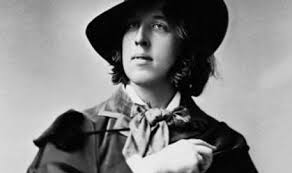1900년 11월 30일, 아일랜드의 희곡작가 오스카 와일드 (Oscar Wilde, 1854 ~ 1900) 별세
오스카 핑걸 오플래허티 윌스 와일드 (Oscar Fingal O’Flahertie Wills Wilde, 1854년 10월 16일 ~ 1900년 11월 30일)는 아일랜드의 시인이자 극작가이다. 1880년대에 걸쳐 여러 다른 형식으로 글을 썼으며, 이후 1890년대 초 런던의 가장 유명한 극작가 가운데 하나가 되었다. 와일드는 경구와 희곡, 그리고 유일한 장편소설 《도리언 그레이의 초상》으로 가장 유명하다.
와일드는 퀸즈베리 사건이라는 유명한 재판으로 인해 극적인 몰락을 겪게 되고, ‘막중한 풍기문란’으로 감옥에 수감된다. 학자인 H. 몽고메리 하이드는 이 용어가 영국 법정에서 ‘비역죄 (Buggery Act 1533)’에까지 이르지 않은 동성애를 의미한다고 주장한다. 그는 이 사건 때문에 영국에서 영원히 추방되어 평생 돌아가지 못했으며 1900년 프랑스 파리에서 뇌수막염에 걸려 사망했다.
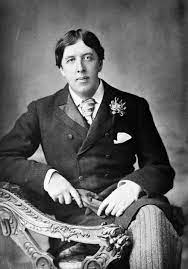
– 오스카 와일드 (Oscar Wilde)
.이름: 오스카 핑걸 오플래허티 윌스 와일드 (Oscar Fingal O’Flahertie Wills Wilde)
.출생: 1854년 10월 16일, 영국 아일랜드 더블린
.사망: 1900년 11월 30일 (46세), 프랑스 파리
.직업: 작가
.언어: 영어, 프랑스어, 게일어
.국적: 영국(아일랜드)
.학력: 트리니티 대학교
.모교: 아일랜드 트리니티 대학교, 영국 옥스퍼드 대학교
.종교: 로마 가톨릭
.활동기간: 빅토리아 시대
.장르: 드라마, 단편 소설, 대화, 저널리즘
.사조: 유미주의
.배우자: 콘스턴스 로이드
.자녀: 시릴 홀랜드, 비비언 홀랜드
.주요 작품: ‘진지함의 중요성’, ‘도리언 그레이의 초상’ 등
영향 받은 인물: 플라톤, 아리스토텔레스, 고대 그리스 문학, 셰익스피어, 고티에, 프랑스 문학, 위스망스, 키츠, 위고, 발자크, 크로폿킨, 페이터, 러스킨, 맥닐 휘슬러, 단테
.영향 준 인물: 보르헤스, 조이스, 베케트, 모로, 지드, 프라이, 더럴, 스토파드, 히친스, 모리세이
오스카 와일드는 1854년 10월 16일 아일랜드 더블린에서 태어났다. 그는 트리니티 칼리지에서 고전문학을 전공했으며 1874년 옥스퍼드의 맥덜린 칼리지에 들어가 시 <라베나>로 뉴다이제스트 상을 받았다. ‘예술을 위한 예술’의 개념을 주장하는 유미주의 운동의 초기 리더로서, 와일드는 문학과 사회단체에서 중요한 인물이 되었다.
그의 동화집 <행복한 왕자와 다른 이야기들>은 이후 소설 <도리언 그레이의 초상>과 <석류의 집>등 창작에 많은 영향을 미쳤다.
그가 더 유명해진 것은 희곡 <원더미어 부인의 부채>가 대중에 소개된 이후였다. <중요치 않은 여성> <진지함의 중요성>으로 극작가로서 명성을 얻기 시작했다.
1900년 11월 30일 사회 부조리에 대한 날카로운 위트와 다가오는 새로운 세기의 미에 대한 예견자로서 천부적인 재능을 지녔던 와일드는 예술적 영감의 도시 파리에서 험난하고 고단했던 생을 마감했다.
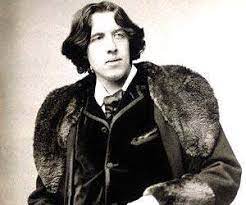
○ 생애 및 활동
와일드는 1854년 아일랜드 더블린의 웨스트랜드 로 21가에서 앵글로계 아일랜드인 가정에서 태어났다. 아버지 윌리엄 와일드 경은 아일랜드의 대표적인 안과와 비과 외과의사이며, 고고학과 민속에 대한 책을 썼다. 또한 박애주의자로서, 트리니티 칼리지 뒤에 위치한 링컨 플레이스 내 도시 빈민을 위한 무료 진료소로 유명하였다. 애들레이드 도로에 위치한 더블린 안과 비과 의사의 선구자로 평가받는다. 그리고 어머니 제인 프랜시스카 엘지는 성공적인 작가이며, ‘스페란차’로 알려진 아일랜드 민족주의자였다.
1855년 6월 와일드 가는 그당시 유행하던 거주 지역인 1번 에리온 스퀘어로 이사하였다. 와일드의 어머니는 토요일마다 정기적인 오후 살롱을 열었으며, 그 초대객에는 셰리던 레퍼뉴, 찰스 레버, 조지 피트리, 아이작 버트, 윌리엄 로언 해밀턴, 새뮤얼 퍼거슨 등이 있다. 오스카는 9살 때까지 집에서 교육을 받았다. 그는 페르마냐, 에이스킬렌에 있는 포토라 왕립 학교에 1864년에서 1871년까지 재학하였으며, 여름 기간 동안 가족과 함께 웩스퍼드 시골의 워터포드와 메이요에 있는 윌리엄 경의 가족집에서 지냈다. 와일드의 형제들은 이후 소설가로 성장하는 조지 무어와 함께 놀곤 하였다.
포르타를 졸업한 후, 와일드는 1871년부터 1874년까지 더블린의 트리니티 칼리지에서 고전 문학을 공부하였다. 그 후 1874년부터 1878년까지 옥스퍼드 대학 모들린 칼리지에서 수학했다.
태만하기로 유명했으나 고전학에서는 발군의 성적을 나타냈다. 1882년에 미국으로 강연여행을 떠나 희곡을 쓰고 이것이 뉴욕에서 상연되었으나 성공하지 못했다. 그 후 몇 가지 소설이나 시를 쓰고 또는 비극도 썼으나 와일드의 재능이 발휘된 것은 경묘한 희극의 분야, 즉 <윈더미어 부인의 부채>(1892), <시시한 여자> (1893), <이상적 (理想的) 남편> (1895) 등으로, 그 정점을 차지하는 것이 <진지함의 중요성> (1895)이다. 이러한 작품에서 와일드는 왕정복고시기의 콩그리프가 이룬 희극 작법의 전통으로 되돌아갔다고 말할 수 있겠다. 시극 <살로메>는 영국에서 상연이 금지되었으며 1894년에 사라 베르나르에 의해 파리에서 초연되었다.
1895년에 와일드는 동성애 사건으로 2년간의 노동 금고형 처분을 받았다. 그 후 파리에 나왔으나 건강이 악화되고 경제적으로도 파탄나며 뇌수막염에 걸려 1900년 46세의 나이로 사망하였다.
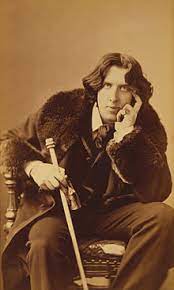
○ 작품
– 시
라벤나 (1878)
시집 (1881)
스핑크스 (1894)
리딩 감옥의 노래 (1898)
– 희곡
베라; 혹은, 무정부주의자들 (1880)
파두아 공작부인 (1883)
살로메 (프랑스 판본) (1893, 1896년 파리 시에서 초연되었다)
윈더미어 부인의 부채 (1892)
하찮은 여인 (1893)
살로메 : 1막의 비극: 알프레드 더글라스 경이 오스카 와일드의 프랑서 판본을 번역하고, 오브리 비어즐리가 일러스트레이션을 곁들였다.(1894)
이상적인 남편 (1895)
진지함의 중요성 (1895)
La Sainte Courtisane and A Florentine Tragedy Fragmentary. First published 1908 in Methuen’s Collected Works
– 산문
캔터빌의 유령 (1887)
행복한 왕자와 다른 이야기 (1888)
아서 새빌 경의 범죄
다른 이야기들
의향 (1891)
석류의 집 (1891)
사회주의적 인간의 영혼 (First published in the Pall Mall Gazette, 1891, first book publication 1904)
구렁텅이에서 (1905)
오스카 와일드의 편지 (1960) This was rereleased in 2000, with letters uncovered since 1960, and new, detailed, footnotes by Merlin Holland.
Teleny or The Reverse of the Medal (Paris, 1893) Wilde is involved in its composition but not confirmed as its author.
– 소설
도리언 그레이의 초상 (1891)
– 동화
동화집 행복한 왕자와 다른 이야기들 (The Happy Prince and Other Tales, 1888년 작)
행복한 왕자
욕심쟁이 거인
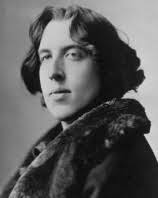
* Selected works
Ravenna (1878)
Poems (1881)
The Happy Prince and Other Stories (1888, fairy stories)
Lord Arthur Savile’s Crime and Other Stories (1891, stories)
A House of Pomegranates (1891, fairy stories)
Intentions (1891, essays and dialogues on aesthetics)
The Picture of Dorian Gray (first published in Lippincott’s Monthly Magazine July 1890, in book form in 1891; novel)
The Uncensored Picture of Dorian Gray was published by the Belknap Press of Harvard University Press in 2012.
The Soul of Man under Socialism (1891, political essay)
Lady Windermere’s Fan (1892, play)
A Woman of No Importance (1893, play)
The Sphinx (1894, poem)
An Ideal Husband (performed 1895, published 1898; play)
The Importance of Being Earnest (performed 1895, published 1899; play)
De Profundis (written 1897, published variously 1905, 1908, 1949, 1962; epistle)
The Ballad of Reading Gaol (1898, poem)
– Essays
“The Philosophy of Dress” First published in The New-York Tribune (1885), published for the first time in book form in Oscar Wilde On Dress (2013).
“The Decay of Lying” First published in Nineteenth Century (1889), republished in Intentions (1891).
“Pen, Pencil and Poison” First published in the Fortnightly Review (1889), republished in Intentions (1891).
“The Soul of Man under Socialism” First published in the Fortnightly Review (1891), republished in The Soul of Man (1895), privately printed. (“The Soul of Man Under Socialism” on Wikisource)
Intentions (1891) Wilde revised his dialogues on aesthetic subjects for publication in this volume, which comprises:
“The Critic as Artist”
“The Decay of Lying”
“Pen, Pencil and Poison”
“The Truth of Masks”
“Phrases and Philosophies for the Use of the Young” first published in the Oxford student magazine The Chameleon, December 1894) (“Phrases and Philosophies for the Use of the Young” on Wikisource)
“A Few Maxims For The Instruction Of The Over-Educated” First published, anonymously, in the 1894 November 17 issue of Saturday Review.
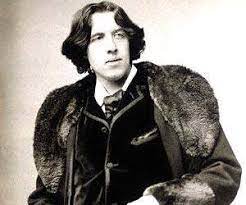
– Novel
The Picture of Dorian Gray (1890/1891) was Wilde’s only complete novel. The first version of “The Picture of Dorian Gray” was published, in a form highly edited by the magazine, as the lead story in the July 1890 edition of Lippincott’s Monthly Magazine. Wilde published the longer and revised version in book form in 1891, with an added preface. The Uncensored Picture of Dorian Gray was published by the Belknap Press of Harvard University Press in 2012.
– Short Fiction
The Happy Prince and Other Tales (text) (1888, a collection of fairy tales) consisting of:
“The Happy Prince”
“The Selfish Giant”
“The Nightingale and the Rose”
“The Devoted Friend”
“The Remarkable Rocket”
A House of Pomegranates (text) (1891, fairy tales) consisting of:
“The Young King”
“The Birthday of the Infanta”
“The Fisherman and His Soul”
“The Star-Child”
Lord Arthur Savile’s Crime and Other Stories (text) (1891) consisting of:
“Lord Arthur Savile’s Crime”
“The Canterville Ghost”
“The Sphinx Without a Secret”
“The Model Millionaire”
“The Portrait of Mr. W. H.”
– Poetry
Ravenna (1878) Winner of the Newdigate Prize.
Poems (1881) including Charmides, was Wilde’s collection of poetry and first publication.
The Sphinx (1894)
Poems in Prose (1894)
“The Artist”
“The Doer of Good”
“The Disciple”
“The Master”
“The House of Judgement”
“The Teacher of Wisdom”
The Ballad of Reading Gaol (1898)
– Plays
Vera; or, The Nihilists (1880)
The Duchess of Padua (1883)
Lady Windermere’s Fan (1892)
A Woman of No Importance (1893)
An Ideal Husband (1895)
The Importance of Being Earnest (1895)
Salomé (1896) Translated from French by Lord Alfred Douglas
La Sainte Courtisane (Incomplete)
A Florentine Tragedy (Incomplete)
– First published posthumously
De Profundis (Written 1895-97, in Reading Gaol). Expurgated edition published 1905; suppressed portions 1913, expanded version in The Letters of Oscar Wilde (1962).
The Rise of Historical Criticism (Written while at college) First published in 1905 (Sherwood Press, Hartford, CT) privately printed. Reprinted in Miscellanies, the last volume of the First Collected Edition (1908).
The First Collected Edition (Methuen & Co., 14 volumes) appeared in 1908 and contained many previously unpublished works.
The Second Collected Edition (Methuen & Co., 12 volumes) appeared in installments between 1909–11 and contained several other unpublished works.
The Letters of Oscar Wilde (Written 1868-1900) Published in 1962. Republished as The Complete Letters of Oscar Wilde (2000), with letters discovered since 1962, and new annotations by Merlin Holland.
The Women of Homer (Written 1876, while at college). First published in Oscar Wilde: The Women of Homer (2008) by The Oscar Wilde Society.
– Misattributed
Teleny, or The Reverse of the Medal (Paris, 1893) has been attributed to Wilde, but its authorship is unclear. One theory is that it was a combined effort by several of Wilde’s friends, which he may have edited.
Constance On September 14, 2011, Wilde’s grandson Merlin Holland contested Wilde’s claimed authorship of this play entitled Constance, scheduled to open that week in the King’s Head Theatre. It was not, in fact, “Oscar Wilde’s final play,” as its producers were claiming. Holland said Wilde did sketch out the play’s scenario in 1894, but “never wrote a word” of it, and that “it is dishonest to foist this on the public.” The Artistic Director Adam Spreadbury-Maher of the King’s Head Theatre and producer of Constance pointed out that Wilde’s son, Vyvyan Holland, wrote in 1954, “a significant amount of the dialogue (of Constance) bears the authentic stamp of my father’s hand”. There is further proof that the developed scenario that Constance was reconstituted from was written by Wilde between 1897 and his death in 1900, rather than the 1894 George Alexander scenario which Merlin Holland quotes.

참고 = 위키백과, 교보문고
크리스천라이프 편집부

